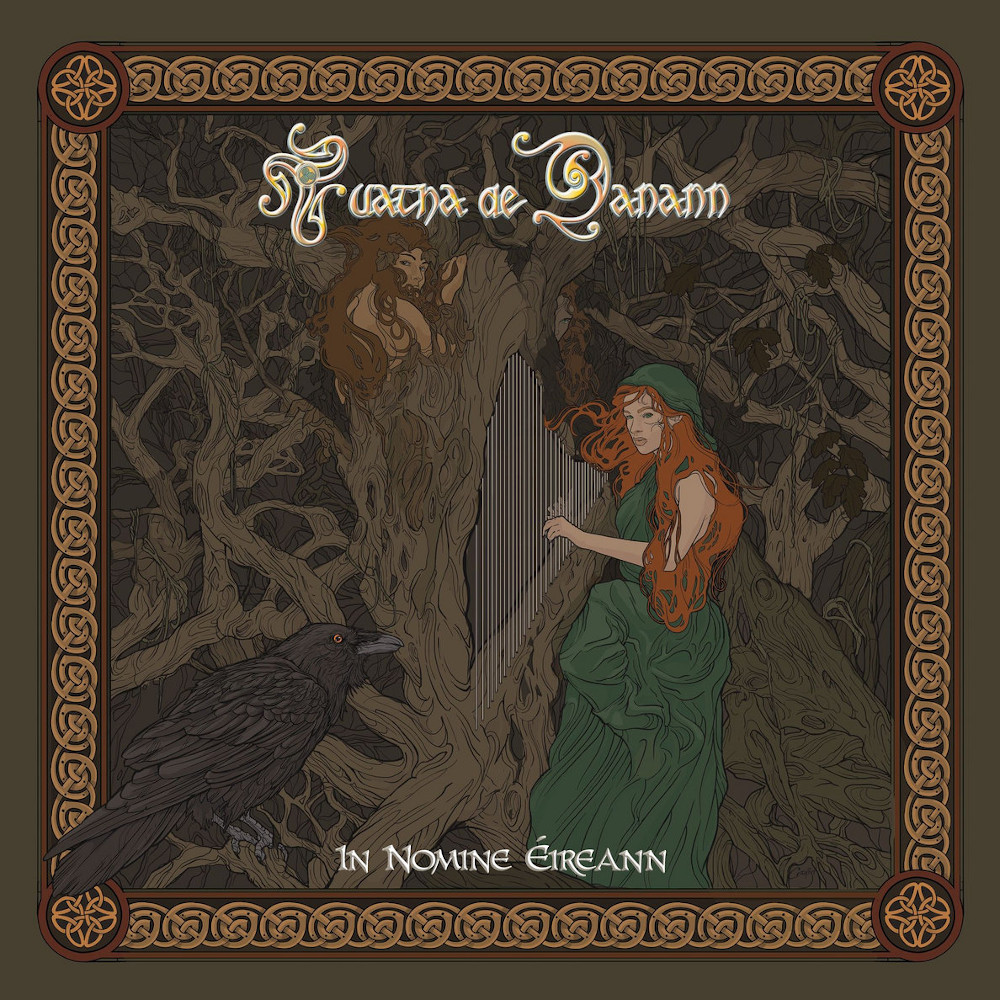 |
Country: Brazil
Style: Folk Rock/Metal
Rating: 7/10
Release Date: 25 Nov 2020
Sites: Bandcamp | Facebook | Instagram | Metal Archives | Official Website | YouTube
While most of the 2020 albums I'll be reviewing in January show up often or prominently enough for me to see that I've been missing out, this is one that I'm reviewing because I've only just noticed that it was released, either last November or December, depending on where you look. I reviewed an EP by Tuatha de Danann last March after being intrigued by the very idea of a Celtic folk metal band hailing from as far from the Emerald Isle as Varginha in the southern Brazilian state of Minas Gerais. I left it as a confirmed fan of the band and, of course, I want to check out their new album, their fifth.
It's as blatant a tribute to Ireland as they could conjure up. While they're generally and fairly called a Celtic folk metal band, that's not all they are. They dug deeper into Irish music on that EP, The Tribes of Witching Souls, than a single genre can do justice to and that's even more obvious here. It's folk or folk rock just as often as it is metal, though there are points where it's all the above, like their sublime take on The Wind That Shakes the Barley.
I know the song, so I know it's not a Tuatha de Danann original—it'll be 160 years old this year—and it made me wonder if any of this material is original, because it all sounds like it could well come out of the great Irish songbook. I know that I've heard Molly Maguires before, in a version by the Dubliners and Newry Highwayman too, by a variety of artists. It seems that one of Tuatha de Danann's key influences is Solas, a traditional Irish folk group based in Philadelphia. This version of The Wind That Shakes the Barley is done to their arrangement and John Doyle, from that band, is supposedly here somewhere.
However, Nick Gwerk's Jigs ought to be easily findable in searches and I'm finding nothing except the opener to this album, so maybe some of this is original music. It opens things up in lively traditional style, with the fiddle of Kane O'Rourke and the uilleann pipes of Alex Navar leading some jigs. If they get us dancing, then we're warmed up enough for Molly Maguires, done in Celtic punk fashion, with a guest vocal from Keith Fay of Irish folk metallers Cruachan. Guns and Pikes is the first song to feature a metal crunch behind it, perhaps appropriately given that it's a rebel song, though it takes a minute to show up.
As you may guess, the only consistency here is that everything is obviously Irish, with only one piece of music sounding otherwise to me, that being the closer, King, which seems a little more like English folk music to me, like a Fairport Convention story song. Irish music doesn't come in only one flavour though, so this is a wildly varied set of songs.
There are instrumentals you might hear down the pub. Some are dances like Nick Gwerk's Jigs and The Dream One Dreamt, a dance number driven by fiddle and mandolin. This one's a rocker too but not to the degree we might expect from a folk metal band. It's progressive too, easily being my favourite of these songs, excepting only The Wind That Shakes the Barley. Some are more plaintive folk melodies without additional emphasis, like Moytura and The Master Reels. I could imagine The Calling in a pub too, but it's a vocal song with clean male and female voices singing alongside each other.
There are heavier songs too, but they're thin enough on the ground to make this seem like a folk rock album rather than folk metal. That crunch that kicks in behind Guns and Pikes shows up on The Wind That Shakes the Barley too, not a usual approach to this song but a worthy one. It's sung by a female voice, that of Daísa Munhoz who sings for São Paulo power metal band Vandroya, and it's glorious. It alone makes me want to check out her band. The Devil Drink Cider is likely the heaviest piece of music here though, being a folk metal drinking song. Once more, the crunch doesn't start with the song but joins in once it's moving.
So, as a folk metal album, this is surprisingly lacking in actual folk metal, so be warned. As an homage to Irish music, it's heartfelt and effective. As music, pure and simple, it's a delight and recommended. My goal at Apocalypse Later Music has always been to cover the entire rock/metal spectrum. I merely wasn't expecting to cover quite this much on just one forty-five minute album. It's a folk album, a folk rock album and, on occasions, a folk metal album. If you like Celtic folk, that's all you need to know.


No comments:
Post a Comment